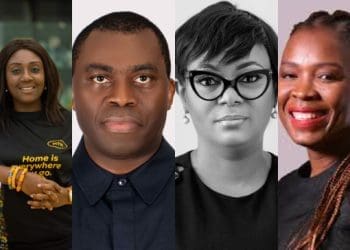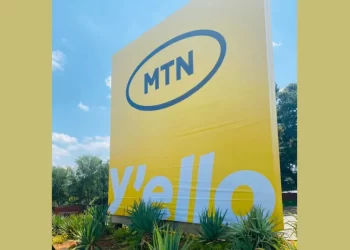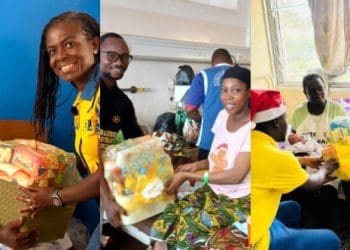Board Chair of the MTN Ghana Foundation, Professor Franklyn Manu, has shed light on how the Foundation carefully selects projects for funding, stressing that the process is guided by impact, sustainability, and collective decision-making rather than personal preferences or external pressures.
Speaking at MTN Ghana’s Bright Conversations in Accra, Prof Manu underscored that the Foundation’s operations are transparent, systematic and designed to ensure that funded initiatives benefit the most vulnerable while standing the test of time.
Key criteria: Impact and sustainability
According to Prof Manu, impact and sustainability are the two central pillars in determining which projects the Foundation supports.
The board places emphasis on how many people will benefit, with special attention given to women and children.
“It is not just about doing a project,” he noted.
“It is about ensuring that the project makes a meaningful difference and can sustain itself long after the Foundation’s intervention.”
He recalled how one of the Foundation’s earliest projects failed within a year of implementation because the beneficiaries, allowed to select their own suppliers, engaged in procurement that led to the breakdown of all the equipment too soon.
“That experience taught us that sustainability must never be compromised,” he said.
From then on, the Foundation took charge of selecting suppliers to ensure quality, accountability and durability.
A collective board decision
Prof Manu explained that project approval is not a unilateral decision by the chairman or any single individual.
“The board’s decisions are collective. The majority carries the vote,” he emphasised.
He explained that applications are first reviewed by the Foundation’s dedicated staff team, who prepare the necessary documents and present the pros and cons of each proposal to the board.
According to him, the board then debates and votes, ensuring that the selection process remains inclusive and balanced.
He added that he personally receives calls and documents almost every day requesting support from the Foundation, but only through the proper process can a proposal be considered.
The application process: From idea to approval
Prof Manu outlined in detail how applicants can submit projects for consideration.
He said the process begins with an applicant with a proposal approaching an MTN Foundation staff member.
The staff member then guides the applicant in preparing the project documentation, which must include a detailed proposal and a sustainability plan.
The completed proposal is then presented to the Foundation’s board, either directly by the applicant or through the staff liaison.
The team evaluates the project by conducting field visits to assess its viability, after which the findings are shared with the board.
It is only at this point, after rigorous review, that the project is either approved or rejected.
“This process ensures that we are not simply responding to emotions or political pressures but making informed decisions,” Prof Manu stressed.
He noted that some applicants, particularly those aligned with political parties, wrongly assume that once they apply, funding is automatic.
“That is not the case. Every project must meet the standards of impact, sustainability and community benefit,” he said.
Communities, responsibilities and challenges
While many projects have succeeded because of strong community interest and participation, a few others have failed because communities did not fulfill their promises.
Prof Manu cited instances where communities pledged on paper to create maintenance funds or form boards to oversee the projects, but failed to follow through.
“Sadly, such communities expect the Foundation itself to maintain and sustain the projects, which is not realistic,” he remarked.
“Our most successful projects are those where the community takes ownership, lives up to its commitments, and embraces the vision of the Foundation,” he concluded.
He stressed the need for effective integration between the Foundation and local assemblies to ensure long-term project sustainability.
Unfortunately, he said some assemblies lose interest in projects once they are commissioned, leaving maintenance gaps.
To address this, MTN Foundation has engaged external consultants to review completed projects, and lessons will be shared with assemblies.
Thematic areas and youth empowerment
The Foundation’s work is anchored in three thematic areas: health, education, and economic empowerment.
Within these, technology plays a central role. For example, MTN encourages entrepreneurship among Ghanaian youth through the Enterprise Support Programme, which provides funding and training for small and medium enterprises (SMEs).
The Foundation also partners with youth summits and digital skills training programmes designed to empower young people to start and grow businesses.
These initiatives, Prof Manu explained, are aimed at building practical skills, promoting financial literacy, and driving digital inclusion – all of which are essential for job creation and building a resilient economy.
No room for bias
Prof Manu also pushed back against perceptions that the MTN Foundation is biased in its project selection.
He cited his own hometown as an example, noting that despite chairing the Foundation since 2007, no projects have been directed there.
“My home town people criticise me for not influencing the board to take projects to my community, but that is not how the Foundation works,” he said.
He argued that aside from mining companies that invest heavily in host communities, no organisation in Ghana has a record of community development comparable to MTN Foundation’s.
Bright conversations and a call for integrity
Prof Manu made these clarifications during MTN Ghana’s Bright Conversations, a series of engagements that celebrate distinguished personalities and their contributions to national development.














